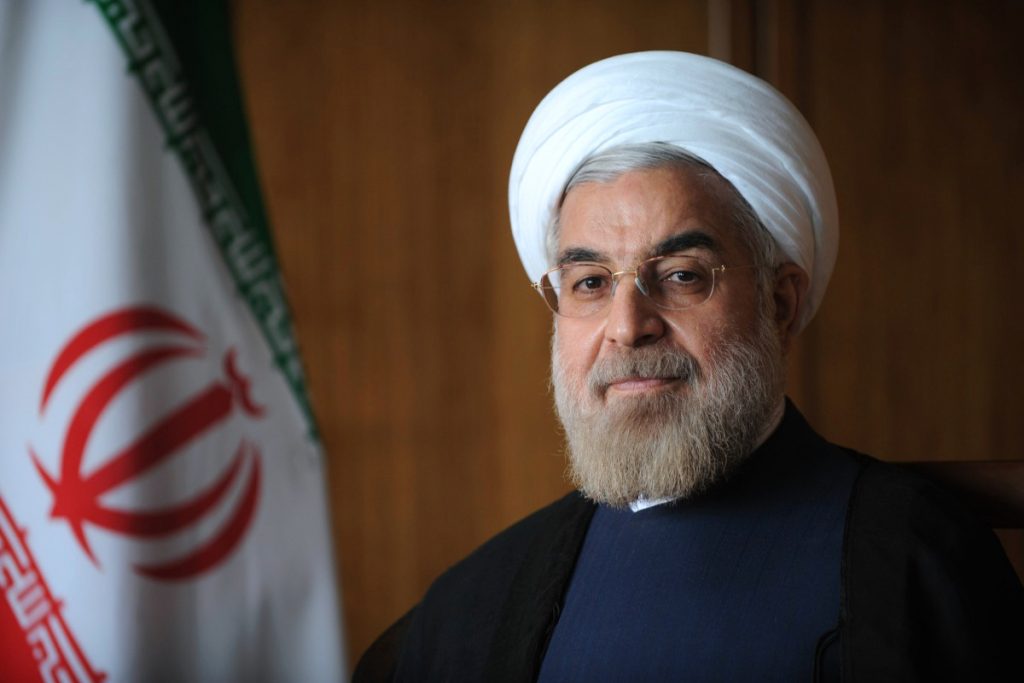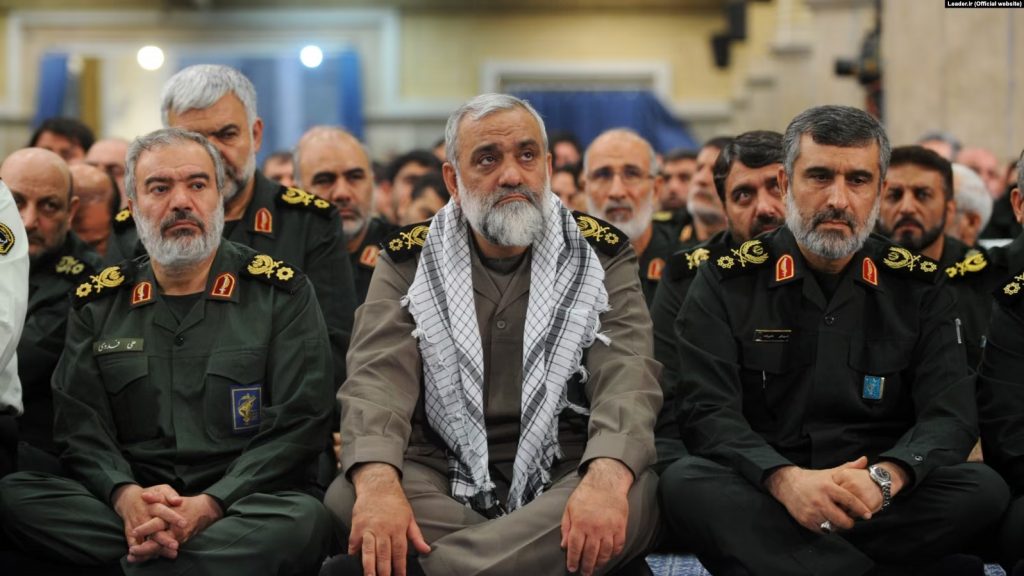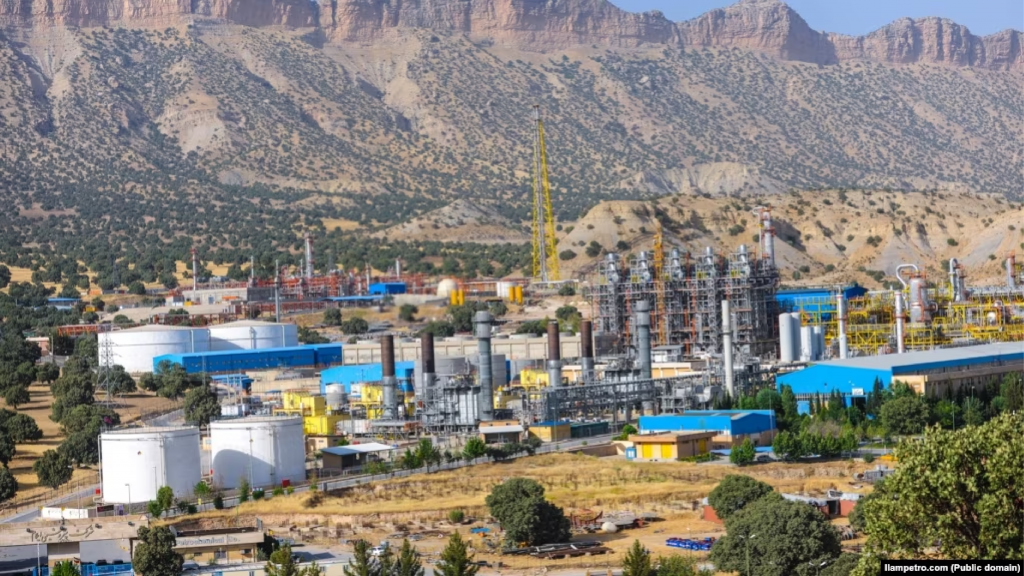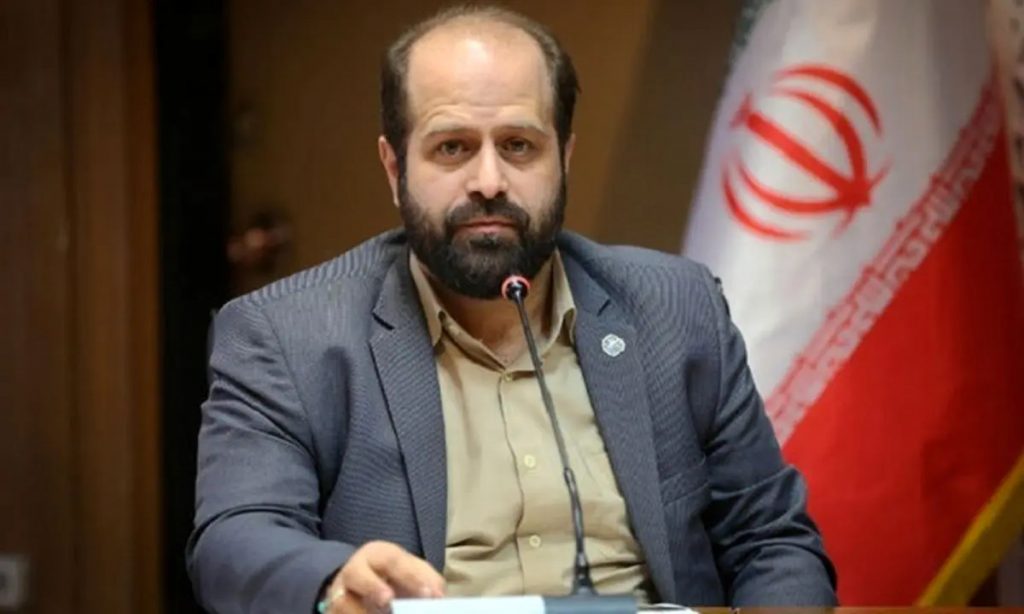
Why Is Russia Targeting Iran’s Territorial Integrity?
The editorial of Jahan Sanat explains why recent positions taken by Russia against Iran’s territorial integrity are a reminder that all countries are after their own national integrity, urging that Iran should do the same.
When in the summer this year, Russia for the first time released a statement against Iran’s territorial integrity in the summit of Arab countries, there were some reactions to it, yet the entire issue was eventually ignored. When it happened for the second time in a summit held in Morocco, it showed that Iran’s support for Russia in the war against Ukraine during past two years has not won over Moscow.
Given Iran’s support for Russia in the Russia-Ukraine war, Iranian authorities did not expect Russia to take that stance against Iran again. So it has now become clear to the country’s officials that they should not put all their eggs in the basket of Russia and China when it comes to foreign policy. These countries are naturally after their own national interests.
Meanwhile, Iranian officials have not been able to increase Iran’s trade with Russia, particularly in the past two years. While Iran’s trade with Russia amounts to an insignificant number, the UAE has established considerable economic cooperation with Russia, playing a significant role in sidestepping sanctions against Moscow and becoming the most important economic partner of this country in the Arab world.
On the other hand, we are witnessing that Russia and Saudi Arabia are closely cooperating in the framework of OPEC+, producing and supplying 20 million barrels of oil to the global market per day. So the evidence shows that Russia’s interests are tied to the UAE and Saudi Arabia, and yet these two countries are considered two main allies of the United States in the Gulf.
So what was said before about the unreliability of Russia is now being proved. During the 1980s, during the Iran-Iraq War, the Russians provided 80% of Iraq’s arms. Also, in the past six months, it has questioned Iran’s territorial integrity over the ownership of the three disputed islands between Iran and the UAE in the Gulf.
The Iranian government must be careful not to endanger Iran’s interests for the sake of Russia. Recent positions of Russia and China against Iran are a reminder that Iran must maintain a balance in its foreign policy.
It must be noted that one of the reasons for such stances against Iran is the sanctions and Tehran’s economic isolation. In fact, if Iran was not under sanctions and had balanced economic relations with Europe, the Arab countries could not issue such statements against Iran’s territorial integrity.
Iran’s isolation, particularly with regard to the economy, must be dealt with immediately. If this happens, then China and Russia will be drawn to Iran.
A Lame Excuse!
The editorial of Etemad penned by the “reformist” political analyst Abbas Abdi goes over the implications of the huge corruption case with regard to tea imports in which billions of dollars were recently embezzled.
One of the claims reiterated by the government’s supporters is that high-ranking officials in Ebrahim Raisi’s government were not aware of the tea corruption, doubling down that in fact it was the government itself that had exposed this huge case of corruption. They are even trying to sell it as a victory for the government. On the other hand, the issue of systematic corruption has been strongly raised again.
The problem is that the amount of this corruption case is so high that it would be considered as unusual even under normal circumstances, let alone now that the country is facing tough forex restrictions.
So it is much worse to say that this huge amount of forex has been paid, without senior officials of the related ministries, the Central Bank, etc. being aware of it. The fact that they were not aware of it shows irregularity and lack of policy. Then what is the use of so many inspection offices in different organizations?
The question is: can such a huge amount of money be paid without approvals and signatures of senior officials and authorities? Apparently, the answer is positive, but only in a managerial system where there is no law. Such a structure is much more dangerous and harmful for society and the economy than the corruption itself.
The reasonable expectation under any government is that this amount should be paid with the knowledge and approval of senior officials. This would show that there is a policy for monitoring the way the foreign currency is spent. So any claim to say that senior officials were unaware of the payment of this huge amount of forex is either false or, if true, a lame excuse. It shows that other irregular payments must have been made, and a full list of all payments must be released. It has been two years since the Raisi government promised to release this list – a promise that has not been fulfilled.
It seems that policymaking has only facilitated corruption, making it easier to cover up such crimes.
Low-profile Return to Vienna Deal
The editorial of Arman Melli talks about the possibility of sanctions on Iran being lifted without returning to the Vienna nuclear deal (JCPOA).
Iran has reiterated that in its military doctrine, it has not used – and will not use – weapons of mass destruction. In other words, it has made it clear that building a nuclear weapon is against the sharia in Iran. From this perspective, it can be said that Iran will not move toward building nuclear weapons.
This claim has been verified again and again and when the JCPOA was underway, the IAEA confirmed Iran’s commitment to the JCPOA. But when the United States unilaterally pulled out of the JCPOA, Iran acted in proportion with the US move — suspending a part of Tehran’s cooperation with the IAEA.
In the new round of negotiations, some of the cases against Iran in the IAEA were supposed to be closed. Apparently, there have been four questions about some of Iran’s nuclear centers. According to the IAEA’s report, Iran has responded to some of the questions and now those cases have been closed by the IAEA. However, the IAEA still has some questions regarding Iran’s nuclear program.
Iran made efforts to respond to these questions, but because of some of the policies of Europe and the United States, Iran had to expel some of the IAEA’s inspectors, which has sparked concerns about Iran’s cooperation with the IAEA.
The truth of the matter is that Tehran’s measures, particularly its reaction to regional issues and the war in Gaza, show that Iran has been acting wisely. So it can be expected that negotiations would be held for lifting the sanctions against Iran.
The United States too may have no problems with Iran selling its oil and even transferring petrodollars to Tehran without any difficulties. Then Iran can continue its trade in the energy market — with restrictions loosened without any sides talking about returning to the JCPOA.
Dollars of National Development Fund on Sale
The editorial of Jahan Sanat asks why the government’s borrowings from the National Development Fund (NDF) are announced in Iran’s national currency (rial) and not in dollars – as the price difference between the two in the free market adds up to a lot of money.
The group in charge of the NDF in Ebrahim Raisi’s government has been acting more transparently compared to the previous periods, and they have released reports of any payments from the NDF so that they are not faced with any accusations in the future.
Apart from questions and ambiguities regarding withdrawals from the NDF during Raisi’s government and where these withdrawals have been expended, there is an important question: how come the withdrawals from the NDF are announced in rials, instead of dollars, euros, or any other currency.
Is the NDF in possession of any rials to give to the Central Bank of Iran? Does the NDF pay other economic centers in rials as well? The previous reports of the fund and withdrawals from the NDF were in dollars, and it has been repeatedly announced that the remaining resources in the fund are in dollars.
Furthermore, it has been announced that the government has obtained permission for a 20% increase in its share from selling oil and allocating it to civil projects, predicting that about $5 billion from the NDF will be given to the government to spend on the civil sector.
If the NDF has given its dollars to the Central Bank in rials, a simple calculation shows that the government owes much more to the fund than what it claims.
Does not the Central Bank have a currency treasury so that it can borrow from the NDF on behalf of the government and pay debts back in dollars? Does not the chairman of the NDF say that whichever entity that has borrowed from the fund must pay it back in dollars? Who is benefitting from the price difference between the dollar and the rial in these transactions?

Rouhani: It Is Hard to Convince People to Go to the Ballot Box This Year

Former Iranian President Hassan Rouhani admitted that many political figures were not willing to run for the upcoming elections in Iran — the Parliament and Assembly of Experts — which are going to be held early next year. He also mentioned that election turnout will possibly be low.
He stated, “I talked to a lot of friends to urge them to run for the parliamentary or for the Assembly of Experts elections. But many were not willing to do so. They had doubts about what the Guardian Council will do or whether people will go to the ballot box or not.”
Rouhani who has signed up for running for the Assembly of Experts also underscored that “convincing people to go to the ballot box is difficult,” calling for any efforts to urge people to participate in the elections.
The former president implied that probably 30% to 35% of eligible voters will take part in the upcoming elections, saying that “in Turkey’s presidential election 88% of eligible voters went to the ballot box, now how do we want to hold an election with a 30% to 35% percent turnout?”
In the meantime, Iranian Supreme Leader Ali Khamenei once again emphasized on the necessity of taking part in the elections and holding these two upcoming elections “gloriously,” saying it is everyone’s duty to invite people for participating in the elections.
Khamenei asked the Iranian people and officials to be ready as best as possible for the upcoming elections which will be held in about two months.
Khamenei has called for extensive public participation in the elections, while after the crackdown on the protests in 2022, he made no mention of the protests and violence against protestors and later, as usual, he attributed everything to the “enemy.”
Iranian Officials, Proxy Groups Increase Verbal Threats

Along with the escalation of tensions in the region due to attacks against international navigation, Iranian officials and proxy groups in the region have increased their threats against the United States and Israel.
On Sunday, December 24, the Iranian army unveiled new achievements, alleging that new missile systems, helicopters and drones have been added to the army’s fleet in southern Iran.
The unveiling of new missile equipment and drones — amidst the crisis of Houthi attacks on commercial ships — was announced one day after the United States stated that a ship carrying chemical products was targeted along the Indian coast by a drone flying from Iran’s soil.
Earlier, Western and regional security authorities had told the US daily The Wall Street Journal that the forces of Iran not only give arms, including missiles and drones to the Houthis, but also provide them with security intelligence.
Moreover, the White House has stated that Iran plays a comprehensive role in planning Houthi attacks on commercial ships, giving them the necessary intelligence for attacking these ships.
Although Ali Bagheri Kani, political deputy to Iran’s foreign minister, has denied any Iranian role in these attacks, Mohammad Reza Naghdi, deputy coordinator to the IRGC, made threats against the United States and its allies, saying that they should “be ready for the closing of the rest of the waterways and paths on them.”
Iranian state media, meanwhile, held interviews with Houthi and Lebanese Hezbollah officials who made threats against the United States and Israel.
In the past three months, Iranian officials have denied any ties with attacks made by the Iranian establishment’s proxy groups in Iraq, Syria, Lebanon and Yemen, saying that these groups make their own decisions.
Earlier, the US daily The Washington Post had reported that Hamas’ recent attack against Israel was planned in the middle of 2022, and the Iranian government had helped it with training Hamas forces on Lebanese soil and arming them.
Two Petrochemical Workers Attempt Suicide After Being Sacked in Southern Iran

Two contract workers of Ilam Petrochemical Company, Javad Norouzi and Mostafa Abbasi, attempted suicide by hanging inside the factory. They were taken to hospital and are currently in critical condition in the ICU.
Norouzi and Abbasi were among a group of 13 workers who had been fired the same day after the factory management announced their services were no longer needed.
Ilam Petrochemical Company workers have repeatedly protested their low wages, lack of job security, non-enforcement of job classification plans as well as late pay.
In the past two years, six workers of this company, including Norouzi and Abbasi, have committed suicide for the same reason: being sacked. Mohammad Mansouri, Ali Mohammad Karimi, Arash Tabarok and Heydar Mohseni were the four workers who lost their lives after committing suicide.
Meanwhile, the Free Union of Iranian Workers announced that workers of Iran National Steel Industrial Group (INSIG) have launched a strike after they were denied entry into the factory. Video clips published on social media show INSIG workers in a protest assembly in Ahvaz on December 25 chanting “long live workers, death to oppressors” and “neither threat, nor prison; nothing works.”
The INSIG management have suspended dozens of employees in the past months for their protest over non-enforcement of job classification plans.
It should also be mentioned that the Iranian judiciary had sentenced 17 labor protesters in this plant to lashes, imprisonment (or fine) in October.
7.4 Million Absolute Illiterates in Range of Six Years of Age and Above

Alireza Abdi, head of the Literacy Movement Organization of Iran, has stated that while there are roughly 4 million people who are either illiterate or semi-literate in the age group of 10 years to 49 years, there are about 7.4 million absolute illiterates in the age group of six years and above.
Abdi, who is also deputy to the education minister, said regarding the latest situation of literacy in Iran that in the age group of 10 years to 49 years, “we have 1,707,000 absolute illiterates and about 2.5 million neo-literates.”
Neo-literates are those who have studied until the second or the third grade in primary schools, but have not been able to get to middle school.
He also pointed to the immigrants living in Iran, saying that so far there are 1 million illiterate and semi-literate foreign citizens in the country who are enrolled in the classes of the Literacy Movement Organization.
This senior official in the Education Ministry did not mention the number of school dropouts.
Last year, Asghar Bagherzadeh, deputy to the education minister, identified 500,000 to 600,000 school dropouts in Iran.
During the coronavirus pandemic, the number of school dropouts increased due to not having access to the internet or being forced to work.
The Literacy Movement Organization is a governmental organization established in 1979 by order of Ayatollah Khomeini to teach adults and children who have no access to schools in deprived regions.
The Iranian government, however, has not been able to eradicate illiteracy in Iran, particularly improving the conditions of education in deprived regions.
Those who go to school in deprived regions in Iran including Sistan and Balochistan Province face other challenges like poor quality education, while the number of students from this province who manage to continue their studies in universities is far less than other provinces.
In recent years, teachers working for the Literacy Movement Organization have repeatedly held gatherings in protest over their livelihood situation.
